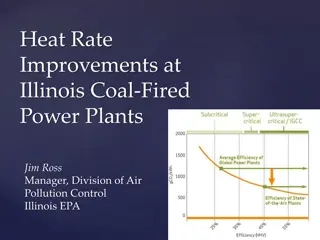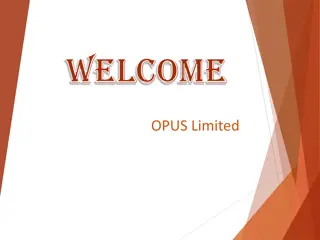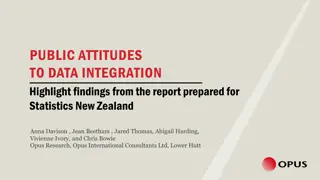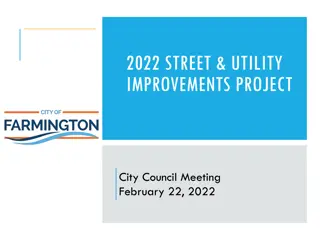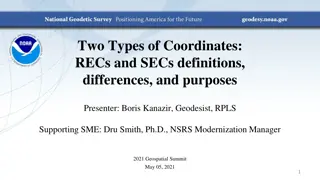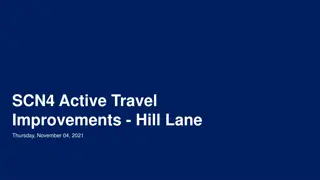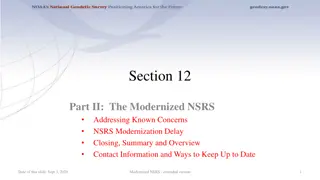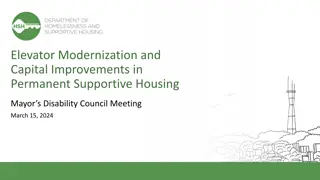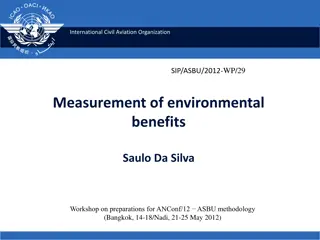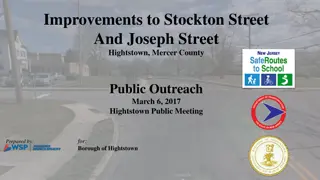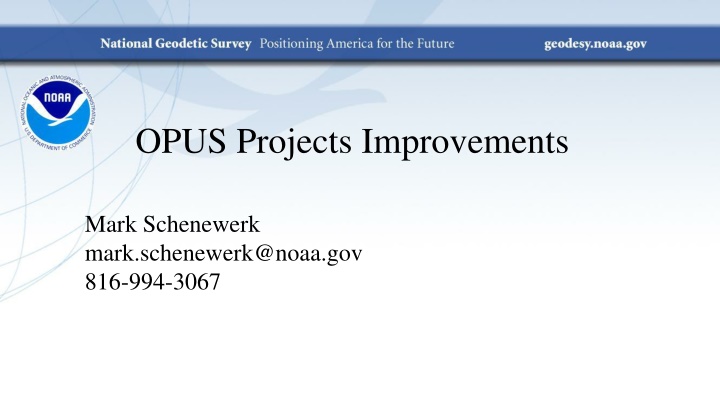
OPUS Projects Improvements: Future Enhancements Timeline
Explore the future enhancements for OPUS Projects users, including updates on reference systems, CORS network support, and improved automated features. Stay informed about the upcoming changes and improvements scheduled through early 2020.
Download Presentation

Please find below an Image/Link to download the presentation.
The content on the website is provided AS IS for your information and personal use only. It may not be sold, licensed, or shared on other websites without obtaining consent from the author. If you encounter any issues during the download, it is possible that the publisher has removed the file from their server.
You are allowed to download the files provided on this website for personal or commercial use, subject to the condition that they are used lawfully. All files are the property of their respective owners.
The content on the website is provided AS IS for your information and personal use only. It may not be sold, licensed, or shared on other websites without obtaining consent from the author.
E N D
Presentation Transcript
OPUS Projects Improvements Mark Schenewerk mark.schenewerk@noaa.gov 816-994-3067
Ive chosen to look to the future - but only about one year. This list is not comprehensive, but I think the enhancements mentioned will be of particular interest to OPUS-Projects users. The items are listed chronologically by their planned deployment. I apologize that this presentation will not include any pictures, plots or screen captures. Get your favorite caffeine source in hand! May 7, 2019 OPUS Projects Improvements 2
Beta: ITRF2014 coordinates for the CORS network. https://beta.ngs.noaa.gov/CORS/coords.shtml Completed March, 2019. Production uses the IGS08 reference system. Beta OPUS uses the ITRF2014 reference system. BETA OPUS-Projects offers a one-time choice to use the ITRF2014 or IGS08 for new projects. You will have the option to continue in the IGS08 if your project existed before the ITRF2014 release. May 7, 2019 OPUS Projects Improvements 3
Beta: GEOID18. https://beta.ngs.noaa.gov/GEOID/GEOID18/ Completed(?) Production will continue to use GEOID12B. Beta OPUS will use GEOID18. BETA OPUS-Projects will default to GEOID18 for ITRF2014 projects and to GEOID12B for IGS08 projects. Improvements in computing the orthometric height error estimate will be included. May 7, 2019 OPUS Projects Improvements 4
Production: ITRF2014 and GEOID18. Late June, 2019. (You ll have plenty of advanced warning.) Production OPUS will use ITRF2014/GEOID14. Production OPUS-Projects will offer the option to continue in the IGS08 if your project existed before the ITRF2014 release. Beta OPUS will be rolled-back to IGS08/GEOID12B as a means for continuity in current user activities. BETA OPUS-Projects will continue to offer options for IGS08 or ITRF2014. May 7, 2019 OPUS Projects Improvements 5
Beta: Better support for CORS decisions. Late summer, 2019. I m currently testing: Improved CORS information from inside your project. Improved automated selection of hub(s). Automated selection of nearby CORS. Automated selection of distant CORS. One-click clean-up of unused CORS. May 7, 2019 OPUS Projects Improvements 6
Production: OPUS-Projects 4.0. Early 2020. This is the operational version of BETA OPUS-Projects and, as BETA OPUS-Projects does now, will facilitate submitting results for publication. The roll-out will include updated documentation and training. This is a first step towards OPUS Projects for Everything. May 7, 2019 OPUS Projects Improvements 7
Beta: OPUS for Real Time Kinematic Data. Early 2020. Incorporating RTK results into static GPS survey projects significantly increases the utility of OPUS-Projects. This is the first step in ingesting other types of vector survey results and the next step in OPUS Projects for Everything. May 7, 2019 OPUS Projects Improvements 8
Beta: Cloud OPUS (or maybe OPUS-Cloud). Later next year? (Sooner rather than later I hope.) Cloud computing is the on demand availability of computer system resources, especially data storage and computing power. https://en.wikipedia.org/wiki/Cloud_computing Imagine OPUS running on dozens of servers rather than the handful that NGS can maintain. Waiting-in-queue delays will almost disappear. Access outages will almost disappear. May 7, 2019 OPUS Projects Improvements 9


